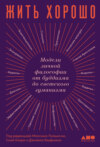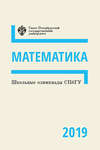Czytaj książkę: «The German Classics of the Nineteenth and Twentieth Centuries, Volume 04»
EDITOR'S NOTE
From this volume on, an attempt will be made to bring out, in the illustrations, certain broad tendencies of German painting in the nineteenth century, parallel to the literary development here represented. There will be few direct illustrations of the subject matter of the text. Instead, each volume will be dominated, as far as possible, by a master, or a group of masters, whose works offer an artistic analogy to the character and spirit of the works of literature contained in it. Volumes IV and V, for instance, being devoted to German Romantic literature of the early nineteenth century, will present at the same time selections from the work of two of the foremost Romantic painters of Germany: Moritz von Schwind and Ludwig Richter. It is hoped that in this way THE GERMAN CLASSICS OF THE NINETEENTH AND TWENTIETH CENTURIES will shed a not unwelcome side-light upon the development of modern German art.
KUNO FRANCKE.
JEAN PAUL
* * * * *
THE LIFE OF JEAN PAUL
By BENJAMIN W. WELLS, Ph.D.
Author of Modern German Literature.
"The Spring and I came into the world together," Jean Paul liked to tell his friends when in later days of comfort and fame he looked back on his early years. He was, in fact, born on the first day (March 21) and at almost the first hour of the Spring of 1763 at Wunsiedel in the Fichtelgebirge, the very heart of Germany. The boy was christened Johann Paul Friedrich Richter. His parents called him Fritz. It was not till 1793 that, with a thought of Jean Jacques Rousseau, he called himself Jean Paul.
Place and time are alike significant in his birth. Wunsiedel was a typical German hill village; the ancestry, as far back as we can trace it, was typically German, as untouched as Wunsiedel itself, by any breath of cosmopolitan life. It meant much that the child who was in later life to interpret most intimately the spirit of the German people through the days of the French Revolution, of the Napoleonic tyranny and of the War of Liberation, who was to be a bond between the old literature and the new, beside, yet independent of, the men of Weimar, should have such heredity and such environment. Richter's grandfather had held worthily minor offices in the church, his father had followed in his churchly steps with especial leaning to music; his maternal grandfather was a well-to-do clothmaker in the near-by town of Hof, his mother a long-suffering housewife. It was well that Fritz brought sunshine with him into the world; for his temperament was his sole patrimony and for many years his chief dependence. He was the eldest of seven children. None, save he, passed unscathed through the privations and trials of the growing household with its accumulating burdens of debt. For Fritz these trials meant but the tempering of his wit, the mellowing of his humor, the deepening of his sympathies.
When Fritz was two years old the family moved to Joditz, another village of the Fichtelgebirge. Of his boyhood here Jean Paul in his last years set down some mellowed recollections. He tells how his father, still in his dressing gown, used to take him and his brother Adam across the Saale to dig potatoes and gather nuts, alternating in the labor and the play; how his thrifty mother would send him with the provision bag to her own mother's at Hof, who would give him goodies that he would share with some little friend. He tells, too, of his rapture at his first A B C book and its gilded cover, and of his eagerness at school, until his too-anxious father took him from contact with the rough peasant boys and tried to educate him himself, an experience not without value, at least as a warning, to the future author of Levana. But if the Richters were proud, they were very poor. The boys used to count it a privilege to carry the father's coffee-cup to him of a Sunday morning, as he sat by the window meditating his sermon, for then they could carry it back again "and pick the unmelted remains of sugar-candy from the bottom of it." Simple pleasures surely, but, as Carlyle says, "there was a bold, deep, joyful spirit looking through those young eyes, and to such a spirit the world has nothing poor, but all is rich and full of loveliness and wonder."
Every book that the boy Fritz could anywise come at was, he tells us, "a fresh green spring-place," where "rootlets, thirsty for knowledge pressed and twisted in every direction to seize and absorb." Very characteristic of the later Jean Paul is one incident of his childhood which, he says, made him doubt whether he had not been born rather for philosophy than for imaginative writing. He was witness to the birth of his own self-consciousness.
"One forenoon," he writes, "I was standing, a very young child, by the house door, looking to the left at the wood-pile, when, all at once, like a lightning flash from heaven, the inner vision arose before me: I am an I. It has remained ever since radiant. At that moment my I saw itself for the first time and forever."
It is curious to contrast this childhood, in the almost cloistered seclusion of the Fichtelgebirge, with Goethe's at cosmopolitan Frankfurt or even with Schiller's at Marbach. Much that came unsought, even to Schiller, Richter had a struggle to come by; much he could never get at all. The place of "Frau Aja" in the development of the child Goethe's fancy was taken at Joditz by the cow-girl. Eagerness to learn Fritz showed in pathetic fulness, but the most diligent search has revealed no trace in these years of that creative imagination with which he was so richly dowered.
When Fritz was thirteen his father received a long-hoped-for promotion to Schwarzenbach, a market town near Hof, then counting some 1,500 inhabitants. The boy's horizon was thus widened, though the family fortunes were far from finding the expected relief. Here Fritz first participated in the Communion and has left a remarkable record of his emotional experience at "becoming a citizen in the city of God." About the same time, as was to be expected, came the boy's earliest strong emotional attachment. Katharina Bärin's first kiss was, for him, "a unique pearl of a minute, such as never had been and never was to be." But, as with the Communion, though the memory remained, the feeling soon passed away.
The father designed Fritz, evidently the most gifted of his sons, for the church, and after some desultory attempts at instruction in Schwarzenbach, sent him in 1779 to the high school at Hof. His entrance examination was brilliant, a last consolation to the father, who died, worn out with the anxieties of accumulating debt, a few weeks later. From his fellow pupils the country lad suffered much till his courage and endurance had compelled respect. His teachers were conscientious but not competent. In the liberally minded Pastor Vogel of near-by Rehau, however, he found a kindred spirit and a helpful friend. In this clergyman's generously opened library the thirsty student made his first acquaintance with the unorthodox thought of his time, with Lessing and Lavater, Goethe and even Helvetius. When in 1781 he left Hof for the University of Leipzig the pastor took leave of the youth with the prophetic words: "You will some time be able to render me a greater service than I have rendered you. Remember this prophecy."
Under such stimulating encouragement Richter began to write. Some little essays, two addresses, and a novel, a happy chance has preserved. The novel is an echo of Goethe's Werther, the essays are marked by a clear, straightforward style, an absence of sentimentality or mysticism, and an eagerness for reform that shows the influence of Lessing. Religion is the dominant interest, but the youth is no longer orthodox, indeed he is only conditionally Christian.
With such literary baggage, fortified with personal recommendations and introductions from the Head Master at Hof, with a Certificate of Maturity and a testimonium paupertatis that might entitle him to remission of fees and possibly free board, Richter went to Leipzig. From the academic environment and its opportunities he got much, from formal instruction little. He continued to be in the main self-taught and extended his independence in manners and dress perhaps a little beyond the verge of eccentricity. Meantime matters at home were going rapidly from bad to worse. His grandfather had died; the inheritance had been largely consumed in a law-suit. He could not look to his mother for help and did not look to her for counsel. He suffered from cold and stretched his credit for rent and food to the breaking point. But the emptier his stomach the more his head abounded in plans "for writing books to earn money to buy books." He devised a system of spelling reform and could submit to his pastor friend at Rehau in 1782 a little sheaf of essays on various aspects of Folly, the student being now of an age when, like Iago, he was "nothing if not critical." Later these papers seemed to him little better than school exercises, but they gave a promise soon to be redeemed in Greenland Law-Suits, his first volume to find a publisher. These satirical sketches, printed early in 1783, were followed later in that year by another series, but both had to wait 38 years for a second edition, much mellowed in revision—not altogether to its profit.
The point of the Law-Suits is directed especially against theologians and the nobility. Richter's uncompromising fierceness suggests youthful hunger almost as much as study of Swift. But Lessing, had he lived to read their stinging epigrams, would have recognized in Richter the promise of a successor not unworthy to carry the biting acid of the Disowning Letter over to the hand of Heine.
The Law-Suits proved too bitter for the public taste and it was seven years before their author found another publisher. Meanwhile Richter was leading a precarious existence, writing for magazines at starvation prices, and persevering in an indefatigable search for some one to undertake his next book, Selections from the Papers of the Devil. A love affair with the daughter of a minor official which she, at least, took seriously, interrupted his studies at Leipzig even before the insistence of creditors compelled him to a clandestine flight. This was in 1784. Then he shared for a time his mother's poverty at Hof and from 1786 to 1789 was tutor in the house of Oerthel, a parvenu Commercial-Counsellor in Töpen. This experience he was to turn to good account in Levana and in his first novel, The Invisible Lodge, in which the unsympathetic figure of Röper is undoubtedly meant to present the not very gracious personality of the Kommerzienrat.
To this period belongs a collection of Aphorisms whose bright wit reveals deep reflection. They show a maturing mind, keen insight, livelier and wider sympathies. The Devil's Papers, published in 1789, when Richter, after a few months at Hof, was about to become tutor to the children of three friendly families in Schwarzenbach, confirm the impression of progress. In his new field Richter had great freedom to develop his ideas of education as distinct from inculcation. Rousseau was in the main his guide, and his success in stimulating childish initiative through varied and ingenious pedagogical experiments seems to have been really remarkable.
Quite as remarkable and much more disquieting were the ideas about friendship and love which Richter now began to develop under the stimulating influence of a group of young ladies at Hof. In a note book of this time he writes: "Prize question for the Erotic Academy: How far may friendship toward women go and what is the difference between it and love?" That Richter called this circle his "erotic academy" is significant. He was ever, in such relations, as alert to observe as he was keen to sympathize and permitted himself an astonishing variety of quickly changing and even simultaneous experiments, both at Hof and later in the aristocratic circles that were presently to open to him. In his theory, which finds fullest expression in Hesperus, love was to be wholly platonic. If the first kiss did not end it, the second surely would. "I do not seek," he says, "the fairest face but the fairest heart. I can overlook all spots on that, but none on this." "He does not love who sees his beloved, but he who thinks her." That is the theory. The practice was a little different. It shows Richter at Hof exchanging fine-spun sentiments on God, immortality and soul-affinity with some half dozen young women to the perturbation of their spirits, in a transcendental atmosphere of sentiment, arousing but never fulfilling the expectation of a formal betrothal. That Jean Paul was capable of inspiring love of the common sort is abundantly attested by his correspondence. Perhaps no man ever had so many women of education and social position "throw themselves" at him; but that he was capable of returning such love in kind does not appear from acts or letters at this time, or, save perhaps for the first years of his married life, at any later period.
The immediate effect of the bright hours at Hof on Richter as a writer was wholly beneficent. Mr. Florian Fülbel's Journey and Bailiff Josuah Freudel's Complaint Bible show a new geniality in the personification of amusing foibles. And with these was a real little masterpiece, Life of the Contented Schoolmaster Maria Wuz, which alone, said the Berlin critic Moritz, might suffice to make its author immortal. In this delicious pedagogical idyl, written in December, 1790, the humor is sound, healthy, thoroughly German and characteristic of Richter at his best. It seems as though one of the great Dutch painters were guiding the pen, revealing the beauty of common things and showing the true charm of quiet domesticity. Richter's Contented Schoolmaster lacked much in grace of form, but it revealed unguessed resources in the German language, it showed democratic sympathies more genuine than Rousseau's, it gave the promise of a new pedagogy and a fruitful esthetic; above all it bore the unmistakable mint-mark of genius.
Wuz won cordial recognition from the critics. With the general public it was for the time overshadowed by the success of a more ambitious effort, Richter's first novel, The Invisible Lodge. This fanciful tale of an idealized freemasonry is a study of the effects in after life of a secluded education. Though written in the year of the storming of the Tuileries it shows the prose-poet of the Fichtelgebirge as yet untouched by the political convulsions of the time. The Lodge, though involved in plot and reaching an empty conclusion, yet appealed very strongly to the Germans of 1793 by its descriptions of nature and its sentimentalized emotion. It was truly of its time. Men and especially women liked then, better than they do now, to read how "the angel who loves the earth brought the most holy lips of the pair together in an inextinguishable kiss, and a seraph entered into their beating hearts and gave them the flames of a supernal love." Of greater present interest than the heartbeats of hero or heroine are the minor characters of the story, presenting genially the various types of humor or studies from life made in the "erotic academy" or in the families of Richter's pupils. The despotic spendthrift, the Margrave of Bayreuth, has also his niche, or rather pillory, in the story. Notable, too, is the tendency, later more marked, to contrast the inconsiderate harshness of men with the patient humility of women. Encouraged by Moritz, who declared the book "better than Goethe," Richter for the first time signed his work "Jean Paul." He was well paid for it and had no further serious financial cares.
Before the Lodge was out of press Jean Paul had begun Hesperus, or 45 Dog-post-days, which magnified the merits of the earlier novel but also exaggerated its defects. Wanton eccentricity was given fuller play, formlessness seemed cultivated as an art. Digressions interrupt the narrative with slender excuse, or with none; there is, as with the English Sterne, an obtrusion of the author's personality; the style seems as wilfully crude as the mastery in word-building and word-painting is astonishing. On the other hand there is both greater variety and greater distinction in the characters, a more developed fabulation and a wonderful deepening and refinement of emotional description. Werther was not yet out of fashion and lovers of his "Sorrows" found in Hesperus a book after their hearts. It established the fame of Jean Paul for his generation. It brought women by swarms to his feet. They were not discouraged there. It was his platonic rule "never to sacrifice one love to another," but to experiment with "simultaneous love," "tutti love," a "general warmth" of universal affection. Intellectually awakened women were attracted possibly as much by Richter's knowledge of their feelings as by the fascination of his personality. Hesperus lays bare many little wiles dear to feminine hearts, and contains some keenly sympathetic satire on German housewifery.
While still at work on Hesperus Jean Paul returned to his mother's house at Hof. "Richter's study and sitting-room offered about this time," says Doering, his first biographer, "a true and beautiful picture of his simple yet noble mind, which took in both high and low. While his mother bustled about the housework at fire or table he sat in a corner of the same room at a plain writing-desk with few or no books at hand, but only one or two drawers with excerpts and manuscripts. * * * Pigeons fluttered in and out of the chamber."
At Hof, Jean Paul continued to teach with originality and much success until 1796, when an invitation from Charlotte von Kalb to visit Weimar brought him new interests and connections. Meanwhile, having finished Hesperus in July, 1794, he began work immediately on the genial Life of Quintus Fixlein, Based on Fifteen Little Boxes of Memoranda, an idyl, like Wuz, of the schoolhouse and the parsonage, reflecting Richter's pedagogical interests and much of his personal experience. Its satire of philological pedantry has not yet lost pertinence or pungency. Quintus, ambitious of authorship, proposes to himself a catalogued interpretation of misprints in German books and other tasks hardly less laboriously futile. His creator treats him with unfailing good humor and "the consciousness of a kindred folly." Fixlein is the archetypal pedant. The very heart of humor is in the account of the commencement exercises at his school. His little childishnesses are delightfully set forth; so, too, is his awe of aristocracy. He always took off his hat before the windows of the manor house, even if he saw no one there. The crown of it all is The Wedding. The bridal pair's visit to the graves of by-gone loves is a gem of fantasy. But behind all the humor and satire must not be forgotten, in view of what was to follow, the undercurrent of courageous democratic protest which finds its keenest expression in the "Free Note" to Chapter Six. Fixlein appeared in 1796.
Richter's next story, the unfinished Biographical Recreations under the Cranium of a Giantess, sprang immediately from a visit to Bayreuth in 1794 and his first introduction to aristocracy. Its chief interest is in the enthusiastic welcome it extends to the French Revolution. Intrinsically more important is the Flower, Fruit and Thorn Pieces which crowded the other subject from his mind and tells with much idyllic charm of "the marriage, life, death and wedding of F. H. Siebenkäs, Advocate of the Poor" (1796-7).
In 1796, at the suggestion of the gifted, emancipated and ill-starred Charlotte von Kalb, Jean Paul visited Weimar, already a Mecca of literary pilgrimage and the centre of neo-classicism. There, those who, like Herder, were jealous of Goethe, and those who, like Frau von Stein, were estranged from him, received the new light with enthusiasm—others with some reserve. Goethe and Schiller, who were seeking to blend the classical with the German spirit, demurred to the vagaries of Jean Paul's unquestioned genius. His own account of his visit to "the rock-bound Schiller" and to Goethe's "palatial hall" are precious commonplaces of the histories of literature. There were sides of Goethe's universal genius to which Richter felt akin, but he was quite ready to listen to Herder's warning against his townsman's "unrouged" infidelity, which had become socially more objectionable since Goethe's union with Christiane Vulpius, and Jean Paul presently returned to Hof, carrying with him the heart of Charlotte von Kalb, an unprized and somewhat embarrassing possession. He wished no heroine; for he was no hero, as he remarked dryly, somewhat later, when Charlotte had become the first of many "beautiful souls" in confusion of spirit about their heart's desire.
In 1797 the death of Jean Paul's mother dissolved home bonds and he soon left Hof forever, though still for a time maintaining diligent correspondence with the "erotic academy" as well as with new and more aristocratic "daughters of the Storm and Stress." The writings of this period are unimportant, some of them unworthy. Jean Paul was for a time in Leipzig and in Dresden. In October, 1798, he was again in Weimar, which, in the sunshine of Herder's praise, seemed at first his "Canaan," though he soon felt himself out of tune with Duchess Amalia's literary court. To this time belongs a curious Conjectural Biography, a pretty idyl of an ideal courtship and marriage as his fancy now painted it for himself. Presently he was moved to essay the realization of this ideal and was for a time betrothed to Karoline von Feuchtersleben, her aristocratic connections being partially reconciled to the mésalliance by Richter's appointment as Legationsrat. He begins already to look forward, a little ruefully, to the time when his heart shall be "an extinct marriage-crater," and after a visit to Berlin, where he basked in the smiles of Queen Luise, he was again betrothed, this time to the less intellectually gifted, but as devoted and better dowered Karoline Mayer, whom he married in 1801. He was then in his thirty-eighth year.
Richter's marriage is cardinal in his career. Some imaginative work he was still to do, but the dominant interests were hereafter to be in education and in political action. In his own picturesque language, hitherto his quest had been for the golden fleece of womanhood, hereafter it was to be for a crusade of men. The change had been already foreshadowed in 1799 by his stirring paper On Charlotte Corday (published in 1801).
Titan, which Jean Paul regarded as his "principal work and most complete creation," had been in his mind since 1792. It was begun in 1797 and finished, soon after his betrothal, in 1800. In this novel the thought of God and immortality is offered as a solution of all problems of nature and society. Titan is human will in contest with the divine harmony. The maturing Richter has come to see that idealism in thought and feeling must be balanced by realism in action if the thinker is to bear his part in the work of the world. The novel naturally falls far short of realizing its vast design. Once more the parts are more than the whole. Some descriptive passages are very remarkable and the minor characters, notably Roquairol, the Mephistophelean Lovelace, are more interesting than the hero or the heroine. The unfinished Wild Oats of 1804, follows a somewhat similar design. The story of Walt and Vult, twin brothers, Love and Knowledge, offers a study in contrasts between the dreamy and the practical, with much self-revelation of the antinomy in the author's own nature. There is something here to recall his early satires, much more to suggest Goethe's Wilhelm Meister.
While Wild Oats was in the making, Richter with his young wife and presently their first daughter, Emma, was making a sort of triumphal progress among the court towns of Germany. He received about this time from Prince Dalberg a pension, afterward continued by the King of Bavaria. In 1804 the family settled in Bayreuth, which was to remain Richter's not always happy home till his death in 1825.
The move to Bayreuth was marked by the appearance of Introduction to Esthetics, a book that, even in remaining a fragment, shows the parting of the ways. Under its frolicsome exuberance there is keen analysis, a fine nobility of temper, and abundant subtle observation. The philosophy was Herder's, and a glowing eulogy of him closes the study. Its most original and perhaps most valuable section contains a shrewd discrimination of the varieties of humor, and ends with a brilliant praise of wit, as though in a recapitulating review of Richter's own most distinctive contribution to German literature.
The first fruit to ripen at the Bayreuth home was Levana, finished in October, 1806, just as Napoleon was crushing the power of Prussia at Jena. Though disconnected and unsystematic Levana has been for three generations a true yeast of pedagogical ideas, especially in regard to the education of women and their social position in Germany. Against the ignorance of the then existing conditions Jean Paul raised eloquent and indignant protest. "Your teachers, your companions, even your parents," he exclaims, "trample and crush the little flowers you shelter and cherish. * * * Your hands are used more than your heads. They let you play, but only with your fans. Nothing is pardoned you, least of all a heart." What Levana says of the use and abuse of philology and about the study of history as a preparation for political action is no less significant. Goethe, who had been reticent of praise in regard to the novels, found in Levana "the boldest virtues without the least excess."
From the education of children for life Richter turned naturally to the education of his fellow Germans for citizenship. It was a time of national crisis. Already in 1805 he had published a Little Book of Freedom, in protest against the censorship of books. Now to his countrymen, oppressed by Napoleon, he addressed at intervals from 1808 to 1810, a Peace Sermon, Twilight Thoughts for Germany and After Twilight. Then, as the fires of Moscow heralded a new day, came Butterflies of the Dawn; and when the War of Liberation was over and the German rulers had proved false to their promises, these "Butterflies" were expanded and transformed, in 1817, into Political Fast-Sermons for Germany's Martyr-Week, in which Richter denounced the princes for their faithlessness as boldly as he had done the sycophants of Bonaparte.
Most noteworthy of the minor writings of this period is Dr. Katzenberger's Journey to the Baths, published in 1809. The effect of this rollicking satire on affectation and estheticism was to arouse a more manly spirit in the nation and so it helped to prepare for the way of liberation. The patriotic youth of Germany now began to speak and think of Richter as Jean Paul the Unique. In the years that follow Waterloo every little journey that Richter took was made the occasion of public receptions and festivities. Meanwhile life in the Bayreuth home grew somewhat strained. Both partners might well have heeded Levana's counsel that "Men should show more love, women more common sense."
Of Richter's last decade two books only call for notice here, Truth about Jean Paul's Life, a fragment of autobiography written in 1819, and The Comet, a novel, also unfinished, published at intervals from 1820 to 1822. Hitherto, said Richter of The Comet, he had paid too great deference to rule, "like a child born curled and forthwith stretched on a swathing cushion." Now, in his maturity, he will, he says, let himself go; and a wild tale he makes of it, exuberant in fancy, rich in comedy, unbridled in humor. The Autobiography extends only to Schwarzenbach and his confirmation, but of all his writings it has perhaps the greatest charm.
Richter's last years were clouded by disease, mental and physical, and by the death of his son Max. A few weeks before his own death he arranged for an edition of his complete works, for which he was to receive 35,000 thaler ($26,000). For this he sought a special privilege, copyright being then very imperfect in Germany, on the ground that in all his works not one line could be found to offend religion or virtue.
He died on November 14, 1825. On the evening of November 17 was the funeral. Civil and military, state and city officials took part in it. On the bier was borne the unfinished manuscript of Selina, an essay on immortality. Sixty students with lighted torches escorted the procession. Other students bore, displayed, Levana and the Introduction to Esthetics.
Sixteen years after Richter's death the King of Bavaria erected a statue to him in Bayreuth. But his most enduring monument had already long been raised in the funeral oration by Ludwig Börne at Frankfurt. "A Star has set," said the orator, "and the eye of this century will close before it rises again, for bright genius moves in wide orbits and our distant descendants will be first again to bid glad welcome to that from which their fathers have taken sad leave. * * * We shall mourn for him whom we have lost and for those others who have not lost him, for he has not lived for all. Yet a time will come when he shall be born for all and all will lament him. But he will stand patient on the threshold of the twentieth century and wait smiling till his creeping people shall come to join him."




















